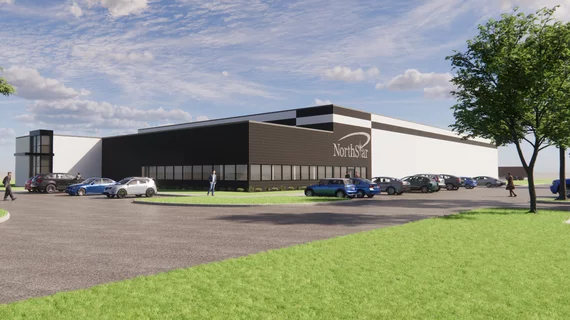NorthStar breaks ground on new facility, will offer radiopharmaceutical development services to other companies
NorthStar Medical Radioisotopes seeks to expand beyond isotope production by adding a Radiopharmaceutical Contract Development and Manufacturing Organization (CDMO) services unit to its business model.
The 36,000 square foot unit will be located in Beloit, Wis., alongside NorthStar’s production facilities. According to a release about the expansion, the CDMO unit will offer a range of customized radiopharmaceutical development and commercialization services to pharmaceutical and biotechnology companies that may require additional resources, infrastructure and expertise to further their product development.
“NorthStar’s radiopharmaceutical CDMO services will be customized to accommodate each customer’s needs and in compliance with rigorous regulations and attention to safety. They will include radionuclide procurement and formulation, dedicated suites for compounding and filling operations, quality assurance and quality control, analytical services, regulatory support, scale-up and commercialization activities and logistical support with packaging and shipping,” NorthStar Medical’s president and COO Frank Scholz, PhD, said in prepared remarks.
Ground has already been broken on the new facility, and it is expected to start offering services in 2024. Its completion will make NorthStar the only company in the United States that houses a commercial-scale, multi-radioisotope production facility and radiopharmaceutical development services unit on the same campus.
“Establishing this new radiopharmaceutical CDMO services unit at NorthStar marks an important inflection point in our growth plan to facilitate efficient patient supply of game-changing radiopharmaceuticals,” said CEO Stephen Merrick, adding that the new addition has the potential to improve the care of patients affected by cancer and other diseases.
This announcement comes on the heels of yet another unexpected isotope shortage that has the potential to delay care for patients in need of therapeutics. In October, Nuclear Medicine Europe (NMEU) announced that inspections uncovered a mechanical failure at the BR2 reactor located in Belgium, which temporarily put the reactor out of service. As of the first week of November, the restart date for the reactor was anticipated for November 17, but NMEU cautioned that the delay would inevitably result in a temporary shortage of Mo-99—a radioisotope that NorthStar currently produces in the U.S. This is the second unexpected shortage of medical isotopes within a year.
For more information about NorthStar’s latest expansion, click here.

